The British cellist on playing fundamentals and developing musicality
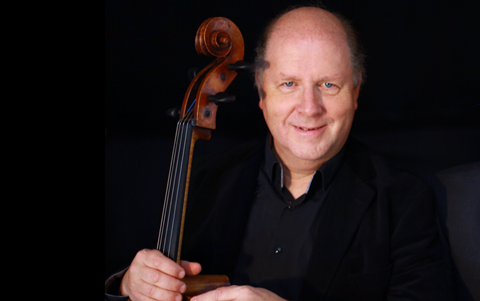
Discover more Featured Stories like this in The Strad Playing Hub.
Read more premium content for subscribers here
I decided to play the cello after watching Christopher Nupen’s film about Jacqueline du Pré. The might of her playing has continued to shine on ever since. Her ability to transmit music and her energy have always stayed with me.
When I was 16 I began studies at London’s Royal College of Music with Joan Dickson. She was very methodical and tremendously positive, and had a trick for working out any problem you had. I then moved to Vienna to study with André Navarra. My career wouldn’t have been possible without the simple, reliable basic technique he gave me. He had a method and it wouldn’t change for anybody. And it was a method that meant you could really play. A technique he particularly impressed on me was the ability to make a big sound, mainly by playing close to the bridge. It’s the intensity of the sound that captures the audience. They don’t know whether your instrument is a Stradivari or not – you just need to make do with the instrument you’ve got!
My own teaching is quite different from Navarra’s. He taught us the fundamental techniques, and just assumed we would do the rest ourselves. But I see teaching as a matter of enablement, and not a place for laying down the law. It’s important to show people there are options and to let their imagination develop.
If your performance doesn’t affect you, it won’t affect the audience
Imagination is one of the most important things in music. It’s the ability to play music as if you wrote it. In a world where technical ability has become frighteningly high, I’m not entirely convinced musicality has improved in the same way. I would stress upon young players that it is the imagination and spontaneity of a performance that really captures people. It was something du Pré was incredible at. When she walked on stage, she gave the impression she hadn’t yet decided how she would play. The music just unfolded. So, by all means, programme a flashy piece, but it might actually be that Adagio that really stays with the audience. Don’t worry about the technique – it will be there. Go for the heart.
I was twelve years old when I started playing the cello, and many people said, ‘Forget about it; it’s too late.’ My reaction was, ‘Well, we’ll see!’ And it brought out the best in me. I wasn’t competitive with others at all; I would just sit for hours on end practising with the goal of sounding like Rostropovich! I think there’s a certain amount of healthy obsession and absolute devotion needed to be a musician. If you want something to be really good, you have to think: ‘What exactly do I need to do in order to achieve this?’
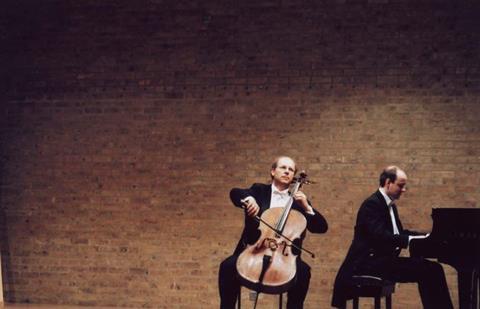
One of the most life-changing pieces of advice I received was from Rostropovich. I was playing for him in a masterclass, and once I had finished, he applauded my accuracy, saying he would be able to transcribe the exact note lengths from what I had played! But then he asked me to play the notes the lengths that I felt them – and then they would be the right length. From that point onwards I was completely liberated.
If your own performance doesn’t affect you, it won’t affect the audience. Imagine what the piece you are playing sounds like to a non-musician and really show them what it is you like about it. That’s really a message for the whole world at the moment. We need to take any chance we have to connect and exchange ideas with each other.
INTERVIEW BY RITA FERNANDES
Read: ‘Good grief, there are 40 of them!’ - Alexander Baillie on Popper studies
Read: Technique: Alexander Baillie on cello sound production
Discover more Featured Stories like this in The Strad Playing Hub.
Read more premium content for subscribers here
The number one source for playing and teaching books, guides, CDs, calendars and back issues of the magazine.
In The Best of Technique you’ll discover the top playing tips of the world’s leading string players and teachers. It’s packed full of exercises for students, plus examples from the standard repertoire to show you how to integrate the technique into your playing.
The Strad’s Masterclass series brings together the finest string players with some of the greatest string works ever written. Always one of our most popular sections, Masterclass has been an invaluable aid to aspiring soloists, chamber musicians and string teachers since the 1990s.
The Canada Council of the Arts’ Musical Instrument Bank is 40 years old in 2025. This year’s calendar celebrates some its treasures, including four instruments by Antonio Stradivari and priceless works by Montagnana, Gagliano, Pressenda and David Tecchler.

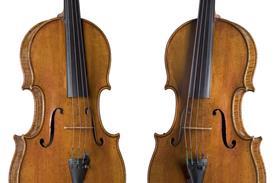


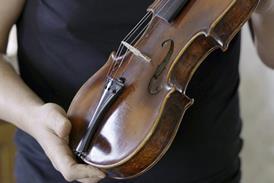




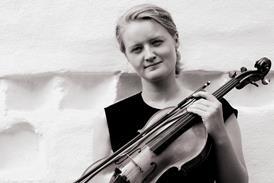



























No comments yet